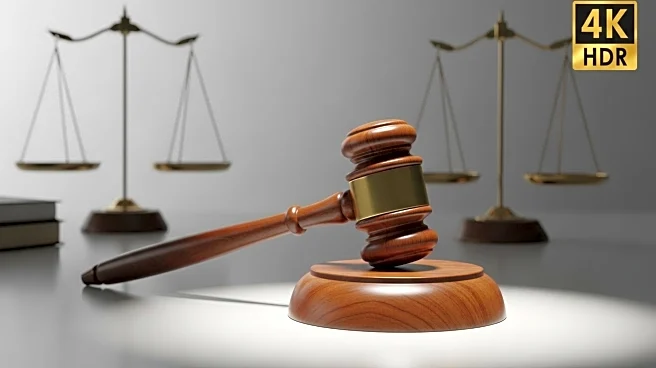What's Happening?
Ryan Routh, accused of attempting to assassinate President Trump, will represent himself in his upcoming trial in Florida. Federal Judge Aileen Cannon has instructed Routh on courtroom conduct, emphasizing the need for professional attire and cautioning against sudden movements. Routh will have court-appointed lawyers available for advice and will be closely monitored by marshals. The trial will include evidence such as a disabled rifle and ammunition, with strict control by FBI agents. Jury selection is set to begin soon, with opening statements expected on September 11. Routh faces life imprisonment if convicted.
Why It's Important?
The trial of Ryan Routh is significant due to its implications for national security and the legal system. The case highlights the challenges of self-representation in serious criminal trials, especially those involving high-profile figures like President Trump. The decision to allow Routh to represent himself underscores the constitutional right to self-representation, despite potential risks. The trial's outcome could impact public perception of security measures for political leaders and influence future legal proceedings involving threats to national security.
What's Next?
The trial is expected to last four weeks, with jury selection beginning shortly. The proceedings will be closely watched, given the involvement of President Trump and the potential for life imprisonment if Routh is convicted. The court will continue to manage the handling of sensitive evidence, ensuring national security concerns are addressed. The legal community and public will be observing the trial's developments, particularly regarding self-representation and courtroom security protocols.










